Now Reading: Best Places to Visit in Unakoti – Ancient Rock Carvings & Spiritual Heritage
-
01
Best Places to Visit in Unakoti – Ancient Rock Carvings & Spiritual Heritage

Best Places to Visit in Unakoti – Ancient Rock Carvings & Spiritual Heritage
1.Khowrabil
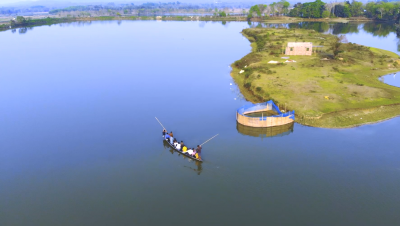
The calm and historical Khowrabil Lake rests hidden away in the culturally rich town of Kailashahar almost 178 kps from Agartala. Although surrounded by the most lovely structures, this water body is an innate attraction coupled with a melting pot of local traditions, which attracts tourists from Tripura and nearby areas.
A Lake of Culture and Tradition Infused in it.
KhowRabil is not just a lovely lake; rather it is a proxy of the place’s heritage. The lake becomes the immediate foment of celebration each and every year eschewing away to the months of October or November during the traditional water festival. The special attraction of this event is the boat race where one can truly experience the outstanding tradition of people living in these parts; culture and patriotism expressed in the colorful game.
Festivities on the Water
When celebrating the water festival, Khowrabil becomes buzzy place where there are decorated boats, drumming and cheering people. The long and narrow traditional boats in the boat race are a wonderful to watch; it is drenched with both participants and tourists. It is the delight of the community & celebration of everyone in happiness, its the time when the rich folk culture of Tripura is expressed.
Why Visit Khowrabil?
Enjoy an old style of a water festival and boat race.
Relax and enjoy serenity of a historic lake.
See the culturally important Chaturdas Devta Mandir.
Ideal for photographers, culture lovers and spiritual tourists .
Ideal time to visit: October–November
- Best time to visit:
- In October-November there is an annual water festival.
- Location:
- Kailashahar, North Tripura
2.Soteromiar Hawor
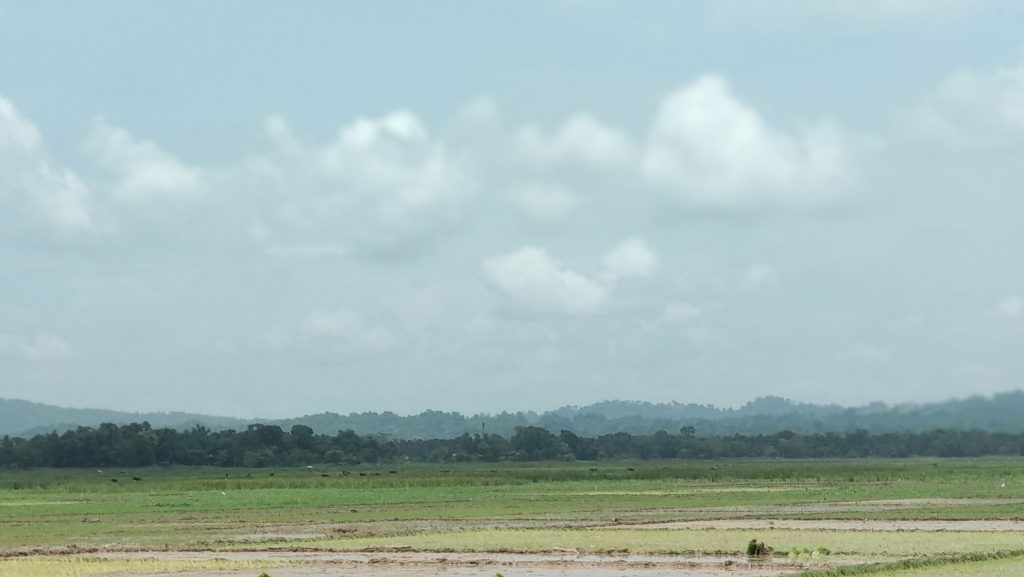
An intriguing marshy wetland, Soteromiar Hawor is only 9 kilometers from the Kailashahar, it serves not only to provide ecological importance but also home to a mystifying local legend. The calm place receives its water from two merging streams; Jarail Cherra and Bagua Cherra and it is slowly earning attention because of its beautiful natural setting and unique biodiversity.
A Wetland with a Story
The name Soteromiar Hawor is derived from a fatal legend. It is thought that 17 Muslim travelers (named “Mia”) tried to cross the large expanse of wetlands by boat. Unfortunately, they had to sink, and drown in deep waters when their boats capsized. It was then the name of Soteromiar Hawor — which means literally “the marsh of seventeen men”.
The marsh becomes a birder’s paradise, in winter. Swarming flocks of migratory birds from Siberia arrive to celebrate the waters with their fluttering calls复苏了这上方的静水。 These include species hard to find anywhere else in the region, which makes Soteromiar Hawor an exciting place for explorations of ornithologists and nature lovers.
As the ecological significance of the place is recognized, the Forest Department of the Government of Tripura has recommended establishing the place as a bird sanctuary, which will protect its distinctive bio diversity and spread eco-tourism.
Why Visit Soteromiar Hawor?
- Full of local legend and cultural history
- Birdwatching hotspot in winter
- Adjacent to Kailashahar and other sites such as Unakoti are…
- A quiet escape in to nature and wetlands.
- In development as a bird sanctuary
- Best time to visit:
- Bird migration season (November to February).
- Location:
- 9 km from Kailashahar, North Tripura
3.Bhabatarini Mandir
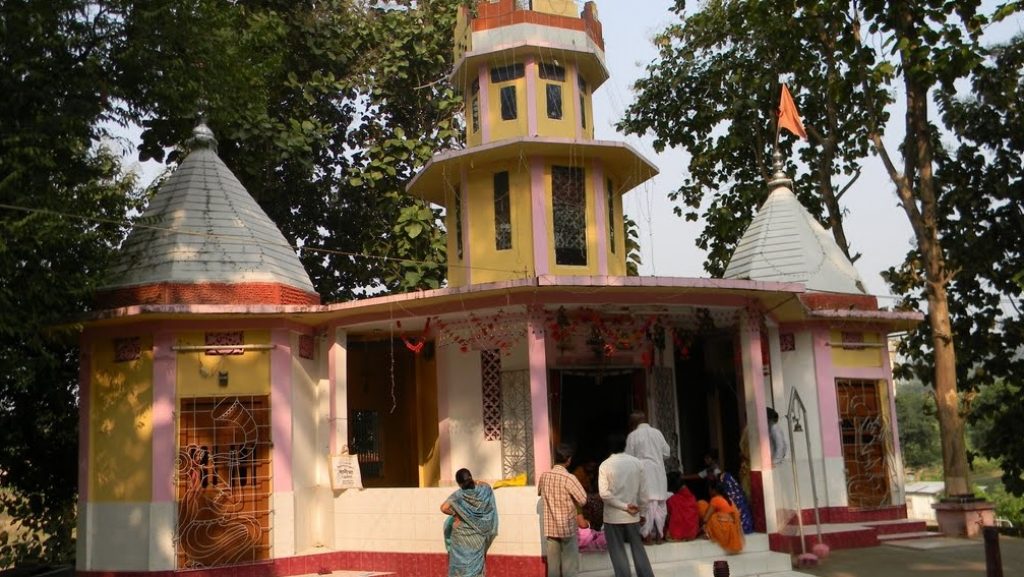
Bounded by greenery, this holy place is Bhabatarini Mandir, located in Kumarghat near Kailashahar, 26 km away. Born in the year 1981 into auspicious occasion of Shivachaturdashi, the temple has risen from obscurity to become a respected place of prayer and a focal point of communal festivities in the North Tripura region.
🛕 Temple Overview
The temple is devoted to Goddess Bhabatarini, incarnation of Goddess Kali and sacred to the devotees of the area. Attracted thousands of pilgrims in major Hindu festivals with simplicity and grace but, it is a testimony of faith and devotion.
🌿 What to See and Do<|end|>
Bhabatarini Mandir: The major temple where devotees pray and carry out rituals particularly on occasion of Kali Puja and Shivachaturdashi.
Shiva Temple: If you look within the same premises, there’ll be a well-bred maintained Shiva temple to increase the spiritual charge of this site.
Lord Buddha Idol: Unlike other temple complexes, this one also has an idol of Lord Buddha representing peace and unity among different spiritual campaigns.
Eco-Kid Park: The small eco-friendly children’s park is opposite the temple, and this makes it an ideal family stop both for spiritual circumambulation and also for recreational needs.
🗓 Festivals and Celebrations
Shivachaturdashi: This is the festival of foundations of the temple and attracts huge crowds of devotees each year. There are special prayers as well as cultural events are called to mark the occasion and lot of spiritual gatherings take place.
Kali Puja: Another important happenings which the temple experiences when it receives a lot of visitors all interested to seek blessings from Goddess Bhabatarini is inscribed.
Why Visit Bhabatarini Mandir?
- Spiritual center of various religious elements.
- Hosts vibrant local festivals
- Eco-park for families and children included.
- Easily accessible from Kailashahar
- Useful environment for prayer and reflection.
- Best Time to Visit:
- Around Feb-March and Oct-Nov dates, Shivachaturdashi and Kali Puja respectively.
4.Laxmi Narayan Mandir
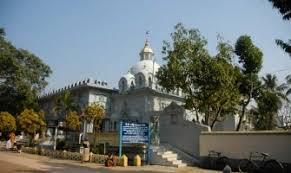
On the Kailashahar–Dharmanagar Road at 5km from Kailashahar the Laxmi Narayan Mandir is a peaceful, highly revelatory temple dedicated to Lord Krishna and Goddess Laxmi. This temple springs from divine legacy and is patronized by royalty that provides religious sanctity and the deep cultural tie to Tripura’s past.
🛕 Historical and Religious Significance
The idol of Lord Krishna is installed by Krishnananda Sevayet in 1964 and the temple has been gaining a lot of stature as one of the main place of worship in the area. The temple is officially registered under Indian Antiquities Act which highlights the cultural and historical fall out of it.
Under the patronage of the royal family of Tripura provided financial assistance throughout its construction, the Laxmi Narayan Mandir is an ideological bracket in itself of devotion, heritage and architecture.
Festivals Celebrated with Grandeur
- Janmashtami: Devotional fervor over the birth of Lord Krishna is seen here with bhajans, kirtans, rituals to attract hundreds of devotees.
- Durga Puja: One of the prominent festivals of the region is marked with great festivities, cultural events and collective worship.
5.Unakoti Heritage Site
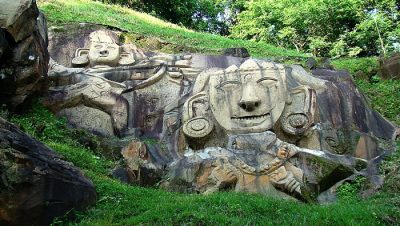
‘Shaiba’ (Saivite) pilgrimage and goes back to 7th – 9th centuries if not earlier. The marvellous rock carvings murals with primitive beauty, waterfalls are not to be missed. Unakoti means one less than a crore and it is said that such numerous rock cut carvings are available here. According to Hindu mythology, when Lord Shiva used to go to Kashi with one crores of gods and goddesses he stopped at this place during night. He requested all the gods and goddesses to wake before sun rise and go for Kashi.
It goes that in the morning, apart from himself, no one else was able to get up and so Lord Shiva packed himself for Kashi cursing the other to become stone images. This has reduced our number to one less than a crore stone images and carvings at Unakoti. These carvings are found in a excellently landscaped forest area with green vegetation everywhere which enhances the beauty of the carvings. The images at Unakoti are of two kinds, rock-carved figures and stone images.
Among the rock cut carvings stand out are the central head of Shiva and the gigantic figures of Ganesha. The central Shiva head, which is called ‘Unakotiswara Kal Bhairava’, is approximately of 30 feet height which includes an embroidered head-repeat itself that is of 10 feet. On either side of the head-dress of the central Shiva are two full size female figures – one is Durga standing on a lion while the other one is on the other side. Also three great images of Nandi Bull are to be found half buried in the ground. Other cut images of stone and rock are also available at Unakoti. A big fair popularly called; ‘Ashokastami Mela’ is organized each year during the month of April that welcomes thousands of pilgrims.
Related articles : Best Places to Visit in South Tripura – Temples, Wildlife & Heritage Sites












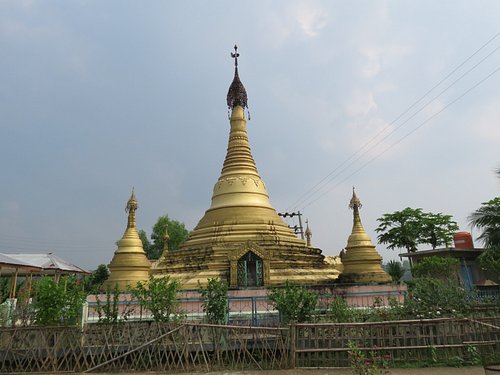
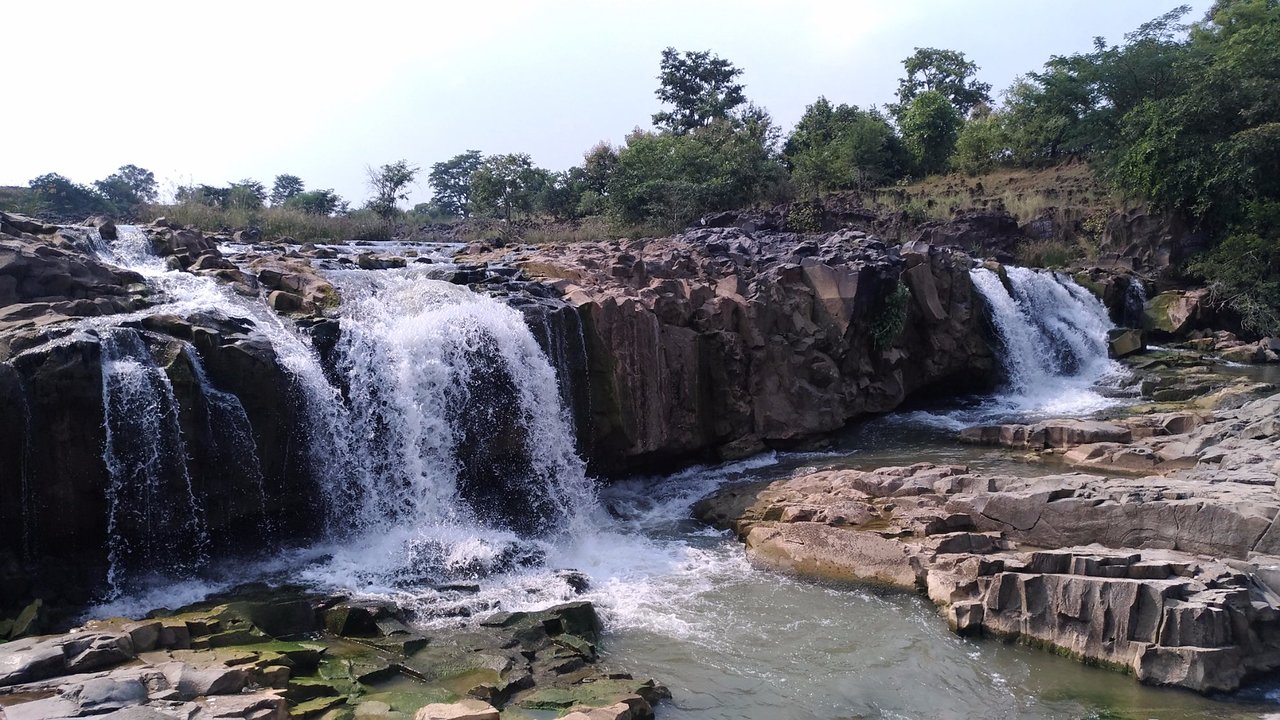
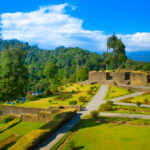
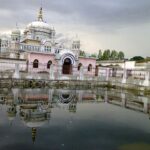



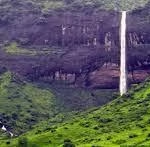
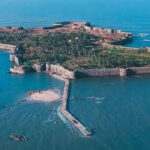
Pingback: Best Places to Visit in Adilabad – Explore Waterfalls, Temples & Wildlife